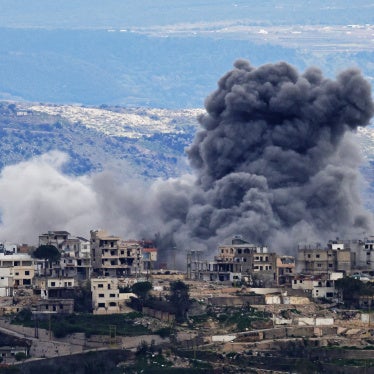I looked across the Cairo courtroom on Monday, awaiting the entrance of Muslim Brotherhood leader Mohamed Morsi, Egypt’s first democratically elected president, who was about to stand trial.
The morning would be an exercise of selective justice, until the presiding judge adjourned the trial until January 8.
Morsi and seven co-defendants walked in, all but Morsi wearing the white robes standard for prisoners in Egyptian courts, the same that former President Hosni Mubarak had worn to his trial. Morsi wore a dark suit. The defendants’ lawyers protested their lack of access to Morsi, whom officials had held incommunicado since his ouster in an unknown military location, in violation of international and Egyptian law. They asked the judge to adjourn the hearing until they could meet their clients, including Morsi, in private and read all the relevant court documents.
The public prosecutor charged Morsi and 14 other ranking Muslim Brotherhood members with murder, attempted murder, and torture for their alleged roles in clashes outside the Ettihadiya presidential palace in December 2012, when Morsi was still in power. The Muslim Brotherhood had sent thousands of supporters to confront protesters who were contesting Morsi’s decision to place himself above judicial review, and the ensuing violence left 10 people dead. In December 2012, Human Rights Watch called for an investigation into the detention and torture of anti-Morsi protesters by Muslim Brotherhood partisans.
But the prosecutors have failed to investigate the killing of at least seven Muslim Brotherhood supporters that night, or the role of the police who were present during the detention and torture of protesters outside the presidential palace gates. Prosecutors’ failure to investigate those cases, as well as the killings of hundreds of pro-Morsi protesters since the military ousted Morsi in early July, undermines the authorities’ claim that they are impartially upholding the law.
At the end of the court session, a few hundred people gathered outside to show their support for Morsi, or for what they called “legitimacy.” A woman wearing niqab told me what she really wanted was a fair and democratic society. “This is not about defending Islam, it is about defending an elected president that we may have chosen not to vote for at the next elections,” she said. Meanwhile, in the background, some journalists leaving the courtroom continued shouting “Execution for Morsi”.






